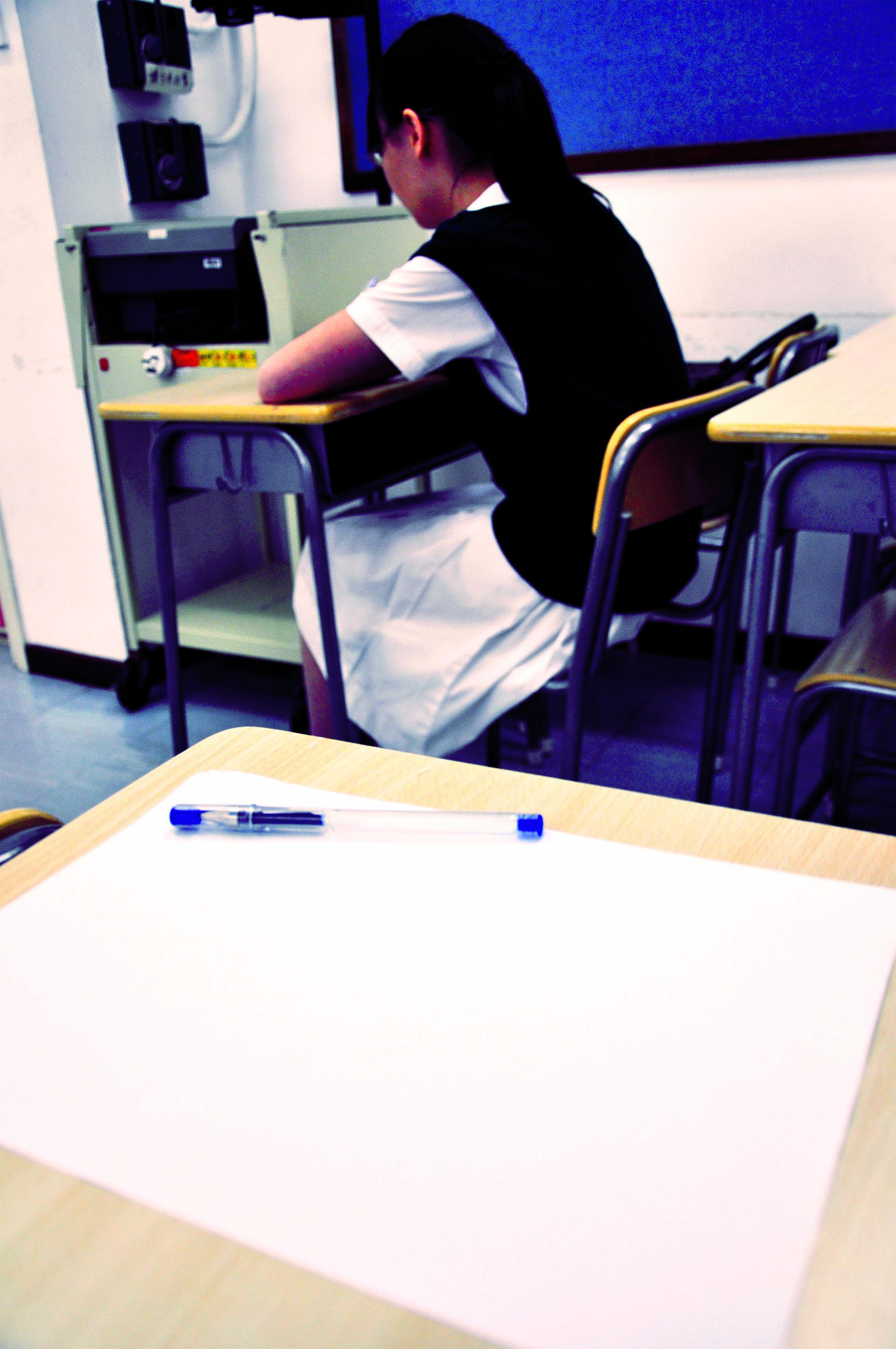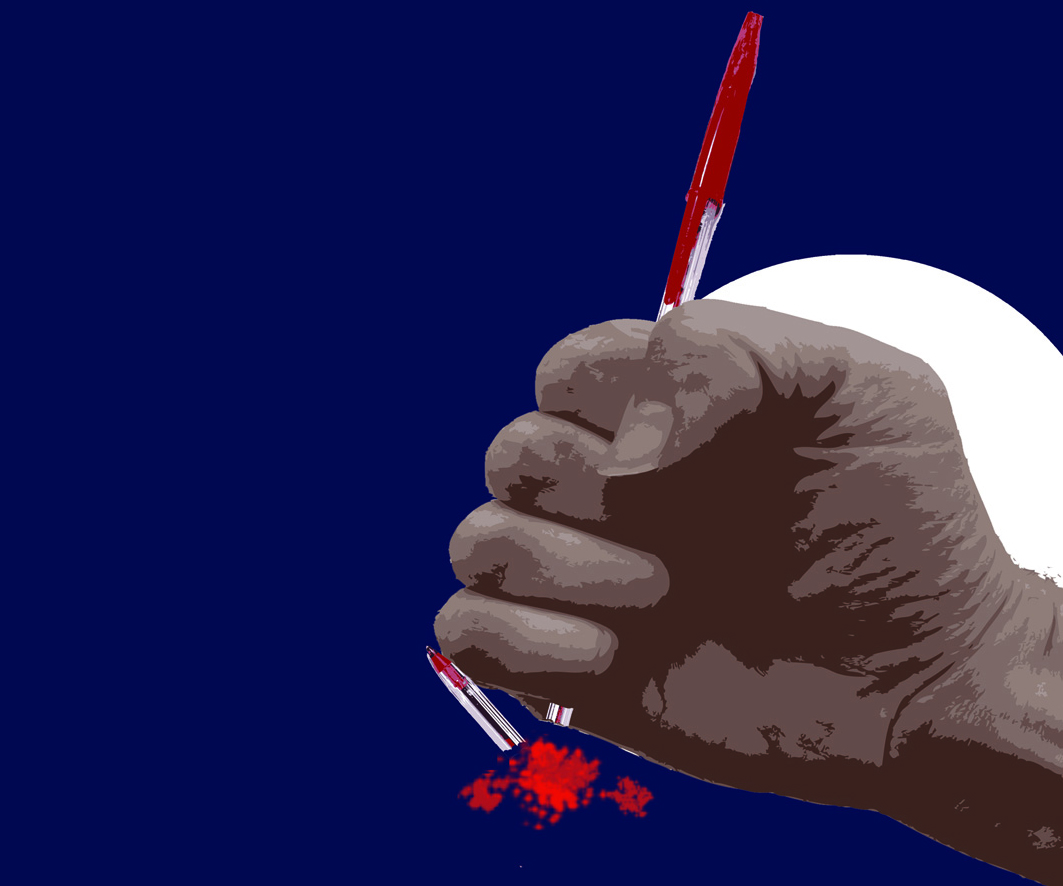Does DSS system make it harder for poorer students to enter Hong Kong’s elite schools?
Reporters: John Yip Tsz Wah, Raymond Tse Tsz Ho
Imagine a school entrance interview. The school is prestigious, it can take its pick of the best students from across Hong Kong. The competition is fierce. The interviewees are asked to introduce themselves in English, they are asked about their extra-curricular interests, their travel experiences. A student from a wealthy family has many experiences to draw upon. Another student from a lower-income background struggles to find something to say.
This scenario is offered by Professor Thomas Tse Kwan-choi of the Department of Educational Administration and Policy at the Chinese University of Hong Kong. Tse has studied the impact of the Direct Subsidy Scheme (DSS) on equality in access to education and social mobility. He believes the DSS amounts to the “quasi-marketisation” and increasing privatisation of Hong Kong’s education system; a trend that will perpetuate the advantages of those with wealth and cultural capital.
However, despite the perception that fees have made DSS schools exclusive clubs for the rich, the Director of Audit’s Report of October 2010 shows that not all DSS schools are expensive. The actual fees charged by DSS secondary schools ranged from zero to HK$110,000 in the school year 2009/2010.
What is more, as a condition of receiving government funding, DSS schools must reserve at least 10 per cent of their income from school fees for remission schemes for poorer students. The eligibility benchmarks for these schemes have to be equally favourable to those set by the government for student financial assistance schemes, such as the Textbook Assistance Scheme and Student Travel Subsidy.
Some schools set aside more than the minimum 10 per cent. For instance, St. Paul’s Co-educational College (SPCC), a former aided school that joined the DSS in 2002 says it does not set any limits on the number of students who can get fee remissions.
According to the school’s principal Anissa Chan Wong Lai-kuen, students can receive subsidies as long as they are eligible. Each year, they use about 20 per cent of the fee income for fee remission. In 2009-2010, 239 or around 20 per cent of students benefited from the scheme. Of those, around two-thirds received grants for the total school fee of HK$52,000.
SPCC students who qualify for the fee remission scheme can also enjoy grants for paid optional learning programmes. For example, if a student gets a full fee remission and is nominated by a teacher to join an overseas learning program, they will not have to pay. “Once you are in, we guarantee that school fees will not be an obstacle for you to survive in our school,” says Chan.
To further encourage poor students to apply to the school, Chan explains that around five per cent of places are reserved for these students each year. The school invites principals of primary schools to promote this scheme to poor but outstanding students. Students admitted through this scheme will not have to pay any school fees.
Although remission schemes exist, many parents are unaware of them. Some DSS schools may actively promote their schemes, but some parents are still scared off by the thought of fees. Bonnie Cheung Yuk-fong, a mother of a primary five pupil is one of them. Her family earns around HK$10,000 a month and she has never considered choosing a DSS secondary school for her daughter because she would not be able to afford the school fees of a typical DSS secondary school.
“I don’t know if DSS secondary schools are offering school fee remission. I never search for the information,” she says. “Even if I know that some DSS secondary schools do have a school fee remission scheme, I am not sure whether I am eligible for it.”
Lau Shiu-on, a parent who suffered sudden financial difficulties when his son was studying in form three at the Hong Kong Management Association David Li Kwok Po College, shares Cheung’s view. Although he received school fee remission from the school, he did not knowanything about such a scheme until the school invited him to apply for it.
He adds that if he had not been able to afford the school fee when his son was entering secondary school, he definitely would not have chosen a DSS secondary school.
“Parents generally will not think about whether they can apply for school fee remission schemes. Instead, they consider their own financial situation first,” he says.
Parents are not the only ones thinking in this way. Some DSS school students have had similar thoughts. Hui Man-ling is currently studying in Form 7 at Diocesan Girls’ School (DGS).
Hui describes her family as lower middle class. When DGS changed from an aided school to a DSS one in 2005, one of the reasons she thought of quitting the school was the annual school fee. “HK$38,000 is a burden to my family! It’s HK$38,000!” she exclaims. She finally stayed at the school because she managed to get fee remission.
Apart from school fees, another potential barrier to entry to elite DSS schools is the perceived importance they attach to extra-curricular activities. Michelle Chu Ka-hei, a graduate of an aided secondary school says one of the reasons her parents did not choose a DSS school was because they thought DSS schools placed a lot of emphasis on extra-curricular activities. Students applying to these schools may need to prepare portfolios listing all the activities they have participated in. As students from lower-income backgrounds may not be able to join many activities, they may be less competitive in the selection process.
Despite such perceptions, academic performance still takes precedence over extra-curricular activities in many elite DSS schools. For instance, Diocesan Boys’ School (DBS) allocates 25 per cent of marks for extra-curricular achievements compared with 50 per cent for academic results in its entrance criteria.
Less wealthy students who do well academically can still enter DSS schools. Brian Luk Wing-chung, a graduate of DBS, is one of them. Luk recalls that he placed fourth or even better in his year at primary school. He had no portfolio of interests and activities to submit when he applied to DBS, and only handed in his primary school report cards.
Like Luk, Kitty Tsoi Yi-man comes from a lower middle class family. The SPCC graduate says she only took part in a few extra-curricular activities like her primary school choir, before entering secondary school.
As DSS schools tend to attract more wealthy students, some may expect poorer students to encounter problems fitting in once they do enter the schools. Tsoi says her family background did affect her choice of friends among her schoolmates. She says she could only befriend wealthy classmates if they did not look down on others or show off about how affluent they were.
Hui Man-ling, the DGS student who also comes from a lower middle class family can relate to Tsoi’s observations. Hui, who entered DGS on the strength of her skills on the athletics track, says she rarely befriends wealthier classmates in DGS. She usually hangs out with her athlete friends who share similar interests and family backgrounds. “I am quite afraid of talking to those wealthy classmates. They always speak in English. And my English is not good. I don’t know what to talk to them about. I will not talk to them unless they talk to me,” she says.
However, Ricky Wong Ka-kei, also a graduate of SPCC who comes from a lower middle class background, sees things differently. He says that although many of his friends are quite wealthy, it does not mean that their parents allow them to lead luxurious lives at school. They get more or less the same amount of pocket money as he does, so they usually have lunch and watch films together.
“I will not make friends with schoolmates based only on their family background,” he says. “Although friends from wealthier family may have different living habits to mine, that’s none of my business. We are not asking each other to live in the same way.”
Despite the promotion of school remission schemes and the evidence of poorer students who have entered elite DSS schools, CUHK’s Thomas Tse Kwan-choi, says the DSS system has made it harder for students from lower socio-economic groups to get into Hong Kong’s top schools overall. It not only perpetuates but reinforces unfairness in access to quality education.
Tse explains that before the launch of the DSS, students could only apply for secondary schools in their own school net district. School places were centrally allocated. However, DSS schools are now allowed to take students from all school nets. This means they can cherry pick the best students.
Moreover, as DSS schools can receive both school fees from students and government subsidies, they have more teaching resources and can provide better education. “It’s like you have the basic meal but you can also add extra dishes,” says Tse.
Given such attractions, it is not surprising more students will want to apply to DSS schools.As these schools attract more applicants, the admission bar becomes higher. Candidates will have to distinguish themselves not just academically but in other areas as well, such as extra-curricular activities.
Tse adds that although DSS schools offer scholarships and school fee remission schemes, lower class parents working long hours to make ends meet may not have access to this information. Some may not have access to or knowledge of how to search the internet for fee remission details. They would only choose a DSS secondary school for their children if they were nominated by principals or teachers in their primary schools.
Looking at the bigger picture of education in Hong Kong, the ability of elite DSS schools to cream off the best of all students, regardless of their background, means fewer top students will be found in government and aided schools. Tse says this enables the DSS schools to retain and strengthen their exclusivity at the expense of government and aided schools.
“DSS schools are like the Peninsula Hotel. Its doors are always open to the public, but who gets to actually enter illustrates class differences,” says Tse. “DSS can’t weaken class differences; it perpetuates them.”














































